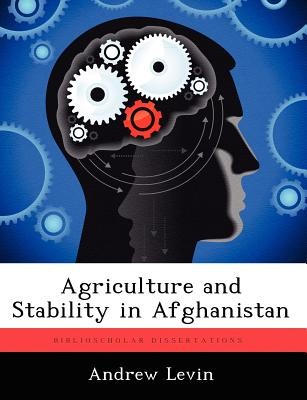
- We will send in 10–14 business days.
- Author: Andrew Levin
- Publisher: BiblioScholar
- ISBN-10: 1249441145
- ISBN-13: 9781249441144
- Format: 18.9 x 24.6 x 0.3 cm, softcover
- Language: English
- SAVE -10% with code: EXTRA
Reviews
Description
Afghanistan looms as the key foreign policy challenge for the Obama administration. Under the previous Bush administration, foreign policy was driven primarily by security considerations, and Afghanistan was viewed a frontline state in the Global War on Terror. The military had the key role in implementing the USG's foreign policy, and foreign assistance was integrated within the U.S. National Security Strategy. However, this approach may not be appropriate given Afghanistan's history, economic and social conditions. Afghanistan is an agrarian society and is one of the poorest countries in the world due to decades of conflict. In particular, the Soviet invasion and occupation from 1979-89 had a devastating impact on its rural economy. As a result, the country now cannot produce enough food to meet its needs, and farmers in insecure regions increasingly rely on opium as a cash crop to support their families. The exponential growth of opium has undermined the economy, government and social fabric of the country. While more than 80 percent of Afghanistan's population relies on agriculture, the USG's support to the sector has been provided primarily through the counter-narcotics program, which promotes alternatives to opium production. However, these efforts have had limited success. In order to promote conditions for long-term stability, a more balanced approach is needed. A key factor in Afghanistan's long-term stability is revitalization of the agriculture sector, which is the basis for food security, rural livelihoods, and growth of the national economy.
EXTRA 10 % discount with code: EXTRA
The promotion ends in 17d.08:47:02
The discount code is valid when purchasing from 10 €. Discounts do not stack.
- Author: Andrew Levin
- Publisher: BiblioScholar
- ISBN-10: 1249441145
- ISBN-13: 9781249441144
- Format: 18.9 x 24.6 x 0.3 cm, softcover
- Language: English English
Afghanistan looms as the key foreign policy challenge for the Obama administration. Under the previous Bush administration, foreign policy was driven primarily by security considerations, and Afghanistan was viewed a frontline state in the Global War on Terror. The military had the key role in implementing the USG's foreign policy, and foreign assistance was integrated within the U.S. National Security Strategy. However, this approach may not be appropriate given Afghanistan's history, economic and social conditions. Afghanistan is an agrarian society and is one of the poorest countries in the world due to decades of conflict. In particular, the Soviet invasion and occupation from 1979-89 had a devastating impact on its rural economy. As a result, the country now cannot produce enough food to meet its needs, and farmers in insecure regions increasingly rely on opium as a cash crop to support their families. The exponential growth of opium has undermined the economy, government and social fabric of the country. While more than 80 percent of Afghanistan's population relies on agriculture, the USG's support to the sector has been provided primarily through the counter-narcotics program, which promotes alternatives to opium production. However, these efforts have had limited success. In order to promote conditions for long-term stability, a more balanced approach is needed. A key factor in Afghanistan's long-term stability is revitalization of the agriculture sector, which is the basis for food security, rural livelihoods, and growth of the national economy.


Reviews